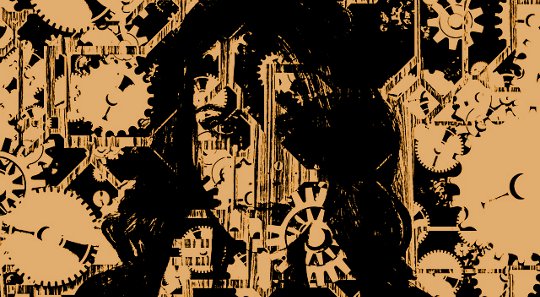
As we can see from the legend of King Arthur and the Knights of the Round Table, not to mention the history and mythology of medieval knights in general, every self-respecting knight must have a quest, a purpose larger than himself, something to which he can devote his life. For the Toltec Knight, that quest is the quest for truth.
In this chivalry of relationship, we have no intention of living in illusion, pretense, or lies. On the contrary, we want to be able to see the world as it really is, and that includes ourselves and other people. We want to be honest with ourselves. We want to know what’s really going on. We want to see beyond appearances.
So, what keeps us prisoners of our illusions? Our assumptions—the things we believe are true that really are not. For example, on my way to work during rush hour, a guy in a Lexus speeds by, cuts in front of me, then weaves in and out of traffic at a hundred miles an hour. My first reaction is fear, quickly followed by anger. In two seconds, I have made up a story: “Damn that guy! Another reckless driver who thinks he owns the road! A selfish jerk! Driving a Lexus, too; he’s probably a drug dealer!” And on and on . . .
The Tendency to Project Onto Others
Am I living in reality? Not at all. I’m making a desperate attempt to explain an unpleasant situation. But the explanation is only in my mind; it’s not real. When I assume what motivates someone else’s behavior, I’m only projecting a story—my story.
And what story am I projecting? The best one? The most optimistic one? The one that gives the other person the benefit of a doubt? Of course not! I make up a story that justifies my anger and fear. And then I react with even more anger to the very story I have created! I weave a mental straight jacket with my own thoughts and feelings. And if I don’t find a peaceful way out, I’m going to start a war.
How can we avoid making assumptions, spreading poison, and becoming prisoners of our own virtual reality?
There are several possibilities. One, if those people are available, the best solution is to simply ask them why they did what they did. In most cases, it’s as simple as that. But it’s amazing how often we don’t do that. Most of the time, we are so convinced of our own story that we don’t even consider other possibilities.
There are countless movies and soap operas based on this premise. One character “knows” beyond the shadow of a doubt why someone said or did something, doesn’t bother to find out whether it’s true, takes some destructive action, and discovers too late that the assumption was false. By then, the damage has been done. The marriage has been ruined, the house has burned down, or the war has begun. Assumptions are the stuff of drama, both in soap operas and real life.
The Courage to Ask Questions
Do you want to erase drama and suffering from your life? Then don’t make assumptions. Instead of jumping to conclusions, find out what’s really going on and let it go. Do your best to clarify the situation and clear the air. If the other person doesn’t respond, then at least you tried. You’ll be amazed at the amount of pain and suffering you can avoid by doing this. And by making this agreement with yourself, you will also be reducing the pain and suffering of other people and the world in general.
Of course, there are many cases where you can’t find out what’s going on. If a car cuts in front of you, you’re probably not going to chase it through the city until it stops. What can you do in these situations?
Make Many Assumptions!
There are several things you can do. One is to ask yourself, “Is it true? Is this guy really a drug dealer?” If you’re honest with yourself, you’re sure to realize you don’t know. And that should help to defuse your anger.
A second is to turn the agreement completely around. Instead of making no assumptions, make lots of assumptions. Imagine other possibilities—for example, “The guy’s wife is in labor, and he’s got to get home fast.” Or, “He had a bad day at work and he’s letting off steam.” Or,“He’s a racecar driver who’s practicing off the track.” Or, “He walked in a puddle of glue, and now his accelerator is stuck to the floor.” Always be sure to add at least one off-the-wall assumption, because it’s hard to stay angry when you’re laughing.
After creating three or four conscious “assumptions,” there is only one conclusion you can come to: “There are lots of possibilities, but I have no idea why that driver was behaving so badly.” You let go of your story, and you let go of your anger.
As you loosen your grip on trying to understand and control the world, you begin to loosen your grip on everything. You learn to forgive. Gradually, as you practice letting go, you free yourself from the tyranny of your mind and emotions.
In the above example, the only reality is the car that cuts in front of you; the rest is only hypotheses and assumptions. When you stop assuming things and just stick with the facts, you’ll be much happier and more peaceful, and so will the people around you.
Take a Good Look at Yourself
To begin with, make the decision to spend just one day observing how many times you are making assumptions about other people’s behavior. You will be stunned! We do this all the time. It’s almost second nature to most humans. And we see others around us doing the same thing.
Just listen to people talking in a café or at the office. Almost everyone you listen to assumes they know why their husband, wife, neighbors, boss, or colleagues did this or said that. They even have assumptions about people they have never met: politicians, singers, actors, and others in the news. Even about life, nature, and God!
We also make assumptions about ourselves, and those assumptions usually sell us short. We often assume we aren’t capable of doing something before we even try. We are constantly living in a virtual world bounded by our own beliefs and self-limitations. In our virtual worlds, we imagine, we assume, we suppose, we believe . . . even though these beliefs and assumptions serve only to block and keep us from being and doing what we’re really capable of. In the real world, by contrast, we see clearly how things truly are, and act accordingly.
Learn to Live With Uncertainty
There is one last condition we must consider. As we have seen, it is sometimes impossible to know what motivated a particular set of words or actions, because there is no way we can talk to the people involved. Their real intentions will be forever unknown to us.
What does that mean? It means that if we’re going to be happy, we have to learn to live with uncertainty. We have to accept that in many a situation, we won’t know the whys and wherefores. We have to be willing to admit, “I don’t know; I have no idea” and be okay with that.
If we can’t accept uncertainty in life, we will feel compelled to invent an explanation, even if it’s completely wrong. And when we do that, we will be creating drama and poison. So often the truth is a simple, “I don’t know.” There’s nothing wrong with that.
“Not knowing” is actually a high state of awareness because it shows that you have the courage to trust that everything will be all right in spite of your not knowing. The alternative is creating a mental illusion that “feels good,” so that we can be “right” and make someone else “wrong.” This is the ego’s game, and it is based on fear.
Fear and lack of self-confidence lead us to want to explain, understand, and control everything. If we exchange fear and lack of confidence for faith—that is, if we deeply trust in life, even when we don’t understand, we can then accept uncertainty as a regular companion on our life path.
The truth is, uncertainty will always be present from time to time. Sometimes we know why something happened, sometimes we don’t. Now, after much practice, I find that when I don’t know, when my mind has no explanation to chew on, it is full trust and confidence in life, which allows me to accept uncertainty with serenity, without rushing to lock myself up in the protective cocoon of a false assumption.
Saying “Yes!” to Life
To break free from this cocoon of beliefs and assumptions, we must develop a deep confidence in life, in something bigger than ourselves that embraces the meaning of all things. It is not fear, but love and faith that motivate the Toltec Knight. That’s why he is on a quest for Truth. That’s why he accepts reality, even when he doesn’t understand it.
Most of the time, assumptions are just poison in our life. They cut us off from others and from reality. They force us to operate in a closed system: our emotions trigger the unconscious creation of assumptions, which only serve to strengthen and amplify these same emotions, and so on. Don’t make assumptions, and you will break free from this nightmarish cocoon. And then you’ll return to what is real, tangible, and true. Then you’ll be saying, “Yes!” to life almost every day.
©2012 by Trédaniel La Maisnie. All Rights Reserved.
Original title: Le Jeu des Accords Toltèques
Reprinted with permission of the English-language publisher,
Findhorn Press. www.findhornpress.com.
Article Source
The Five Agreements Game: A Chivalry of Relationships
by Olivier Clerc.
Click here for more Info and/or to Order this book on Amazon.
About the Author
 Born in Switzerland and living in France, Olivier Clerc is an internationally reknown writer and workshop leader, teaching in many countries around the world. After meeting Don Miguel Ruiz in Mexico in 1999, when he received the "Gift of Forgiveness", Olivier translated and published all of Don Miguel's books in French. Find out more about Olivier and his books at : http://www.giftofforgiveness.net/
Born in Switzerland and living in France, Olivier Clerc is an internationally reknown writer and workshop leader, teaching in many countries around the world. After meeting Don Miguel Ruiz in Mexico in 1999, when he received the "Gift of Forgiveness", Olivier translated and published all of Don Miguel's books in French. Find out more about Olivier and his books at : http://www.giftofforgiveness.net/





























